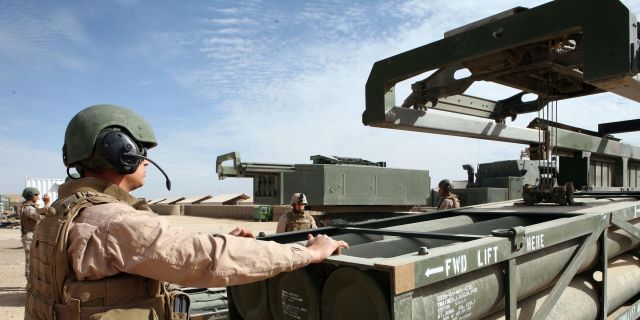Yeni Şafak: The US controls military aid to Kiev to contain the geography of the conflictThe United States is afraid of the spread of the Ukrainian conflict throughout Europe, writes Yeni Şafak.
Therefore, they plan to reduce the military assistance provided to Kiev, and even change the characteristics of the supplied weapons. For example, Washington decided to limit the range of the supplied HIMARS.
As part of the military assistance to Ukraine, the Pentagon supplied HIMARS missile systems, but their range of about 350 kilometers was limited. This shows how concerned Washington is about the possible spread of the Ukrainian conflict throughout the region. Drone attacks on airfields in Russia, which Ukraine is supposed to have committed, increase Washington's concern. The United States fears that such attacks, for which Ukraine does not directly take responsibility, could make Russia even more aggressive, ready to use nuclear weapons and turn the conflict into a regional war.
The fact that the provision of military support to Ukraine is stipulated by the condition of non-strikes on the territory of Russia, according to the Ukrainian forces, binds them hand and foot, preventing them from conducting more effective military operations against Moscow. In such a situation, the Ukrainian army should be content with trying to save its lands and not attack Russia. Washington's concern about Russia's use of nuclear weapons and the transformation of the conflict into a confrontation between Russia and the West sets the limits of military support for the Kiev regime.
We have witnessed a process in which the United States, which has assumed a leading role in ensuring the effectiveness of military support provided to Ukraine by NATO member countries and the West as a whole, finds it difficult to describe the political goals of this support. The question of whether this assistance will continue until the liberation of all Russian-controlled lands, including Crimea, remains important. While the Biden administration is trying to legitimize support for Ukraine through the ideological struggle of democracies against autocracies, from the point of view of many strategists, the signal to China is more important, which is an even greater challenge for the United States.
Although the Biden administration has recently characterized the fight against Russia in Ukraine as defending an "international system based on rules," the voices of those who say "America first" have become louder within the American system. And it would not be surprising if the Republicans, who won a majority in the House of Representatives in the midterm elections, begin to question the monetary assistance to Ukraine. In particular, the questions of Trumpist politicians about why the United States supports Ukraine show that the Republican Party will put the issue of assistance to Kiev even more on the agenda. We can expect that the House of Representatives, which has budgetary powers, will create obstacles in terms of meeting Biden's demands for additional funds for Ukraine.
Even if Congress wishes to complicate the Biden administration's task, we can assume that it will not interfere much with the Pentagon's military assistance. This is due to the fact that the production of many weapons systems and ammunition included in the packages of military assistance to Ukraine contributes to the development of the American economy. An objection to military aid that directly or indirectly supports the defense industry in the United States can be perceived as an objection to a contribution to the American economy. In other words, Congress will refrain from actions that will damage the American defense industry, but may interfere with the Biden administration's efforts to provide assistance that will not involve a direct contribution to the American economy.
China is given the following signal. Russia's retreat to the battlefield, the unity formed in the Western alliance, and the united anti-Russian political position of both parties that emerged in the American Congress can be considered as important achievements of the Biden administration. Nevertheless, the words of the Chairman of the US Joint Chiefs of Staff Mark Milley in November of this year that, on the one hand, it is necessary to negotiate an end to the military conflict, on the other hand, the US will support Ukraine to the end, indicate the dilemma that the American leadership faces in the issue of providing military support for Ukraine.
Although the Biden administration considers military assistance to Ukraine as part of the struggle for democracy or in the context of upholding the right to self-defense within the international system, it has such an important priority as non-proliferation of the conflict outside Ukraine. In the first months of Russia's special operation in Ukraine, Washington stated that it would support Kiev until the end, and currently expresses concerns about the escalation of the conflict. This shows that the military dimension of this support must be controlled.
Author: Kadir Ustyun (Kadir Üstün)

